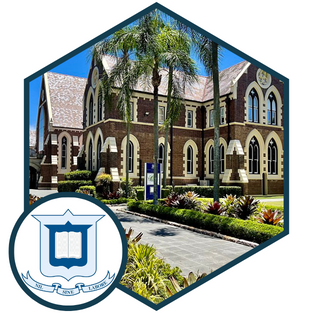Key Findings
Instructure Canvas is the LMS platform of choice for Brisbane Grammar School’s 1:1 initiative
Favourite Canvas features include ease of navigation, Learning Tools Interoperability (LTI), consistent system updates, SpeedGrader
BGS uses Canvas to provide equity in curriculum delivery across cohorts while still providing individual class variability
The Challenge
Brisbane Grammar School (BGS) is an independent, non-denominational school for students in Years 5 to 12. Established in 1868, BGS is the oldest secondary school for boys in Brisbane. Students receive a broad liberal academic curriculum designed to improve their wellbeing, develop life skills and thinking skills necessary for future career opportunities, and serve their communities. Enrolment numbers at BGS continue to expand.
BGS was the first school in Australia to adopt the Desire2Learn learning management system (LMS), using it for more than a decade. However, the school wanted to update the technology it provides for students and teachers. Administrators wanted a new, cloud-based platform that could fit their changing needs in Australian K-12 education.
The Decision
Administrators conducted an internal review of their LMS and looked at a variety of other options, both regionally and internationally. In 2016, they attended EduTech, the largest education conference in Australia, where they met representatives from the Canvas, and later received a live demonstration of the system.
“What sold us on Canvas? The first thing was that I found it very simple compared to other products. Everything we wanted was on the one page. I loved that it was cloud-based, and that things were connected within the system,” said Greg Dabelstein, Dean of Curriculum at BGS.
“I thought it was great that plug-ins and LTIs could be easily incorporated into Canvas and placed in a central location for teachers to utilise. Also, the workflow in Canvas seemed more logical than before.”
The evaluation group comprised a range of stakeholders, including ICT staff, but the decision to switch to Canvas was ultimately made by teachers. Every student and teacher at BGS uses a tablet/PC hybrid device in the classroom, with programs and tools installed on those devices.
During initial adoption, BGS operated two learning management systems concurrently, to train key staff in using Canvas and allow for a better understanding of how it worked compared to the old system.
A complete rollout of Canvas took place in 2018 with the entire school, approximately 1700 students and 580 classes, having access to Canvas courses. Teachers have access to Canvas Commons, a learning object repository that enables educators to find, import and share resources. In addition, BGS also joined the Canvas Community APAC group to get help with onboarding and best practices from other Canvas users in the region.
We use technology to learn, to collaborate, to experiment and to go through experiential learning. Canvas brings those things together.
Greg Dabelstein
Dean of Curriculum, Brisbane Grammar School
The Results
Canvas is now fully operational at Brisbane Grammar School. BGS structures each year’s subject cohort as a course and uses it for delivery of baseline curriculum and assessment. Though the subject matter, content and tools in each subject might be different, the learning experience is the same and equity can be achieved in one unified system.
Staff are increasingly making use of Canvas SpeedGrader and other assessment tools. These tools save time, enhance feedback, create efficiencies and promote communication between students and teachers. Dabelstein said, “Canvas encouraged teachers, through its simplicity and its look, to explore and to use more of its features such as rubrics, learning outcomes and feedback provisions.”
It also prompted questions about other use scenarios. For example, Canvas is used to house a staff-focused professional learning hub to curate readings, resources, videos and training materials. Staff compliance requirements are handled through a Canvas course.
Canvas, as an extensible platform, invites integration of third-party tools into relevant courses. “When teachers saw how external tools could be included and accessed so easily through Canvas, they could see the value and the benefit of it," Dabelstein said.
Going forward, Canvas will assist BGS in its goals around the use of technology and ultimately to engage more learners.
“We want students to have a much wider range of experiences than using just pen and paper. We want them to be able to have an individual experience. The technology is a tool to help our staff provide that to them," Dabelstein said. “We have absolutely no regrets about going to Canvas.”
Download Case Study
